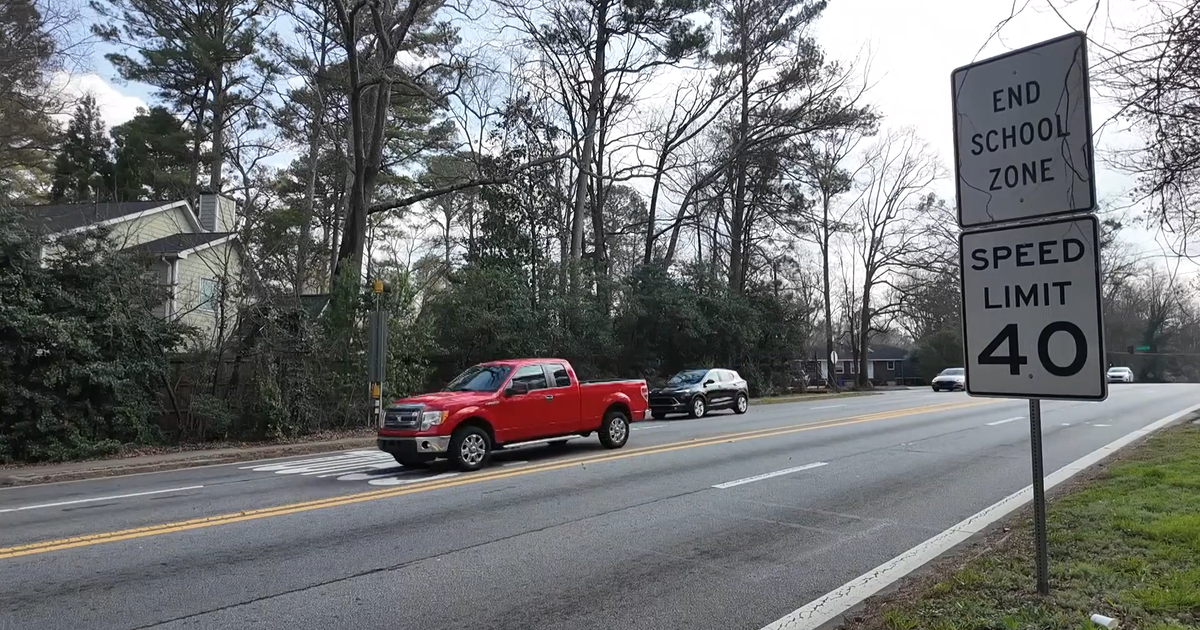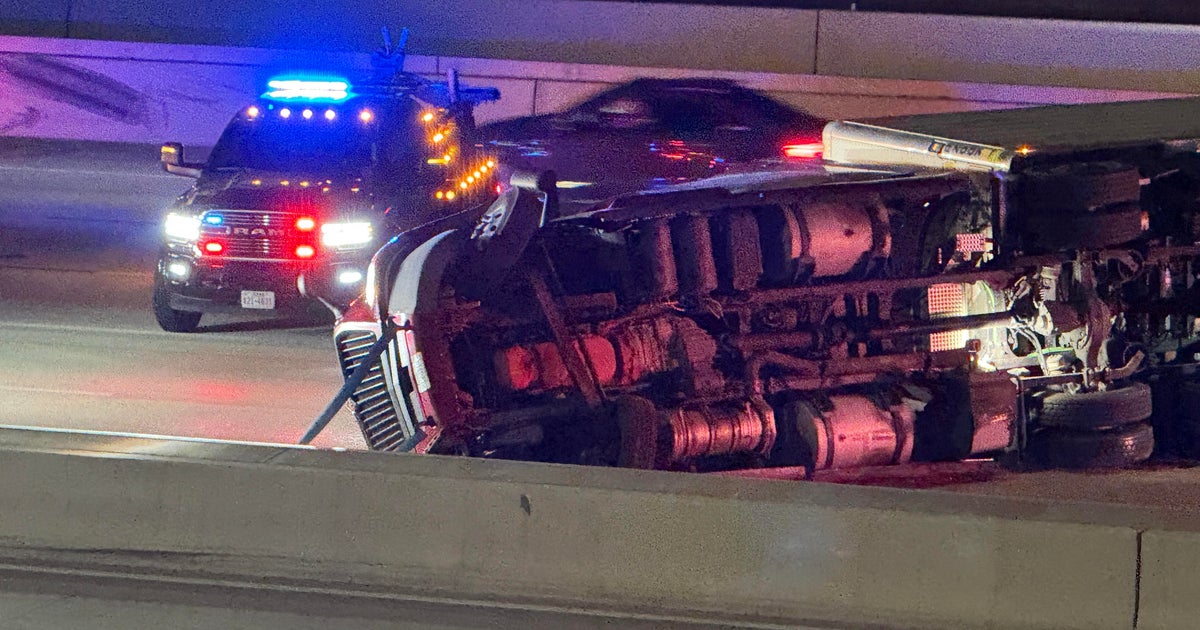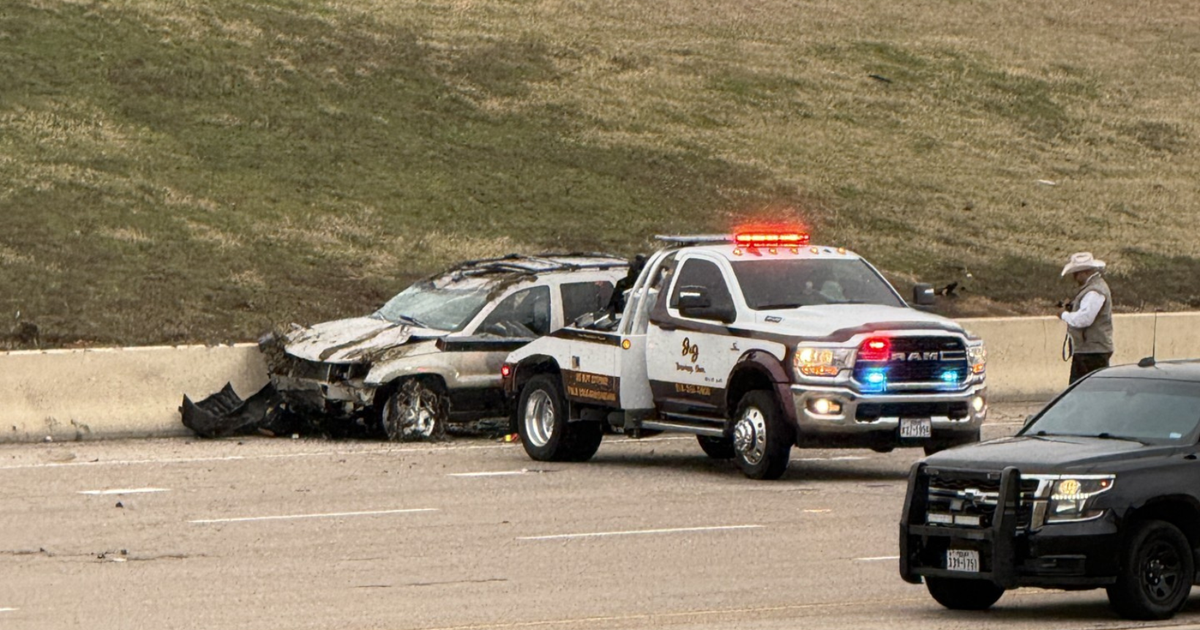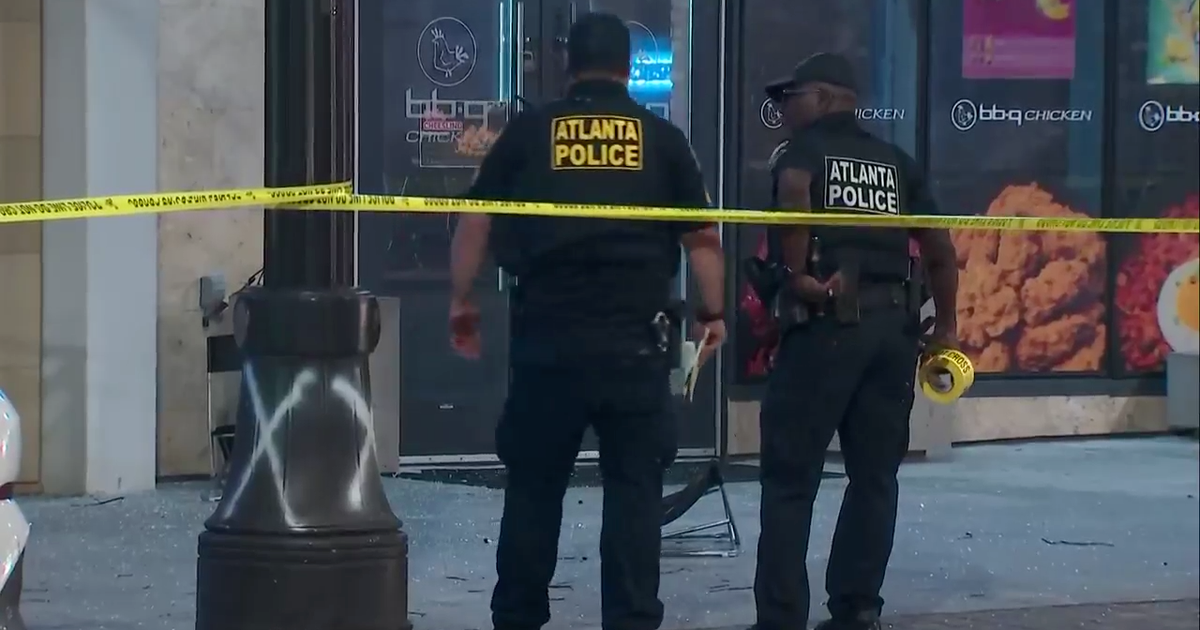Oak Brook police say GPS tag darts can eliminate need for dangerous high-speed chases
OAK BROOK, Ill. (CBS) -- Police in Oak Brook are using a device that may look like a gun, but it doesn't shoot bullets – it fires GPS tags.
As CBS 2's Tara Molina reported Friday, the GPS tag guns are the latest tool being used by the Oak Brook Police Department, among others – so as to eliminate the need to chase criminals.
GPS darts can be deployed from the front grille of a police cruiser, or from a handheld launcher. A split-second decision is made easy, as all it takes is one dart to affix a GPS-equipped tag on a vehicle.
This eliminates the need for possible high-speed chases, worries about police jurisdiction issues, and any concerns about danger on the roads.
High-speed police chases are not only a safety concern, but sometimes they're not even an option. Police and sheriff's departments across the country – including in Illinois - are following different rules when it comes to chasing a wanted criminal, and when to stop chasing entirely.
"We'll have the ability to track that vehicle with our map, coordinate resources with other agencies and surrounding officers, and make the apprehension on that vehicle without having to endanger the lives of those around," Oak Brook police Detective Sgt. Jason Wood explained.
The Oak Brook Police Department started using StarChase GPS dart technology a few years ago - and hasn't looked back.
"The reality is that everyone runs from the police nowadays," said Oak Brook police Chief Brian Strockis. "There's more pursuits than we've ever seen before."
Strockis said the darts have made all the difference.
"We've had specific situations where this technology has helped us to get to that location safely and make that apprehension, and recover stolen vehicles - when otherwise, we may have terminated a pursuit because it was just getting too dangerous," he said.
We are further told the tech has been a huge help in the Oak Brook Police Department's partnerships with departments in Hinsdale, Villa Park, and Chicago.
"Other departments are calling us over the radio when they have situations that they think this technology could be useful," Strockis said.
The maker of the GPS dart system, StarChase, is currently working with police and sheriff's departments in 32 states and internationally. It is made possible in Oak Brook through the police budget approved by the village board as an added tool to their tool kit.
Strockis said the system is not cheap, but it is worth it.
"It's a lot cheaper than a possible lawsuit from a pursuit that should've been ended sooner," he said.
Once the dart is affixed to a car, police go to work right away to follow it.
"Once we are able to tag a vehicle, it goes to our dispatch center - and it's able to monitor where that vehicle is going, and then we can safely get to that location and try and make an apprehension at that time," Strockis said.
Strockis explained the kind of crimes Oak Brook has been seeing – and how the darts can help fight them.
"We get organized retail theft crews coming in here," he said. "These guys have been able to get up next to the vehicle in an undercover car, roll down the window and tag that vehicle without the bad guy even knowing."
He emphasized that the darts are far better than the alternatives.
"It's a great opportunity to be able to back off of a dangerous high-speed pursuit and let the technology go to work and do the tracking for you," Strockis said. "Pursuits by their nature are dangerous. Dangerous for the officer. Dangerous for the bad guy that's running and dangerous for the motoring public."
So could something like this work in Chicago, where we've seen changes in chase policies over the years because of past incidents and possible danger on city streets?
Chicago Police are looking into it, according to StarChase founder and president Trevor Fischbach.
"They are evaluating, and we hope to move forward with them," Fischbach said. "I think it would be amazing in that city – we've had a lot of success in other large cities."
The Chicago Police Department did not share a formal response on this with us. But Fischbach explained many of the departments they work with choose not to talk about their use of the technology publicly.
"A lot of agencies that use this technology don't want to talk about it publicly, because it's tactics," he said.
These darts have been used successfully, nationwide, 10,000 times – meaning 10,000 wanted or accused criminals have been taken off the streets.
But to Fischbach, it's thousands of lives saved.
"The most important thing about StarChase is every tag saves a life. That's what matters – to deescalate and otherwise risky situation and that's something we are very proud of at this company."
The reason so many lives are saved, Fischbach said, is how many crimes and other tragedies the darts could prevent.
"You could probably ask me any crime that's vehicle-related, and a StarChase tag has found a way to alleviate that," he said, "prevent another tragic outcome."
While Chicago Police did not have a formal statement on GPS darts, they did share their directive on pursuing eluding suspects.







